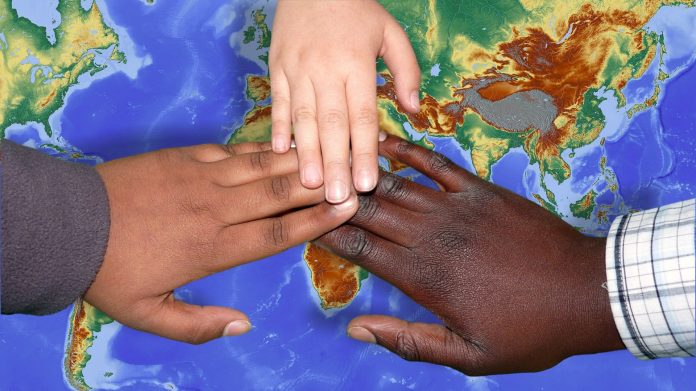The Directorate-General for Education, Youth, Sport and Culture (European Commission) has recently released the Guidelines to the Inclusion and Diversity Strategy inside the European Solidarity Corps (ESC) Programme. This is therefore a guide on how to implement Inclusion and diversity into your ESC projects.
The Framework
Inclusion and diversity are part of the core values of the European Union. Diversity is indeed what features the European society, besides representing at the same time its strength. Taking that into consideration, the context is a good starting point to enhance cohesion and inclusiveness.
EU Programmes and Inclusion&Diversity
The European Solidarity Corps and Erasmus Plus are therefore key programmes to pursue the need of cohesion and inclusiveness. For this reason, the EU Programmes should provide opportunities that are accessible to all. The evidence tells that there are in fact many young people facing barriers when it comes to opportunities. Those are the people having fewer opportunities in education, training and youth work. People then to address by policy initiatives.
Inclusiveness is not new to the Erasmus Plus programme. But the way further is way still far to reach actual and effective inclusiveness, as evaluation and research point out.
The new Erasmus Plus Programme 2021 includes a chapter on inclusion, among other elements. It therefore requests the European Commission to establish a framework for inclusion measures outlining the main areas of work for the next seven years in this regard.
Recommendations
- Target groups: the main target groups of the Inclusion and Diversity strategy are people with fewer opportunities in life, which put them at a situation of disadvantage in comparison with their peers. This refers to both participating in the programmes and in education and training systems.
The exclusion factors that determine the situation of disadvantage may be one of the following:
- disabilities,
- health problems,
- cultural differences,
- social barriers,
- economic barriers,
- barrier linked to discrimination,
- geographical barriers.
- Inclusion and Diversity as priorities in the assessment process: inclusion and diversity are part of the criteria to select applications for funding and to allocate financial support. Quality projects that actively address inclusion and diversity and that involve participants with fewer opportunities, newcomer and grass-root organisations should get priority in the grant awarding process.
- Preparatory visits: when participants with fewer opportunities are part of mobility activities, the organisers should carry out planning visits to the hosting organisations, together with these participants, if relevant.
- Reinforcement in Mentorship: when dealing with people with fewer opportunities, it is important to keep particular attention to the mentorship process to support them.
- Dedicated financial support: the Erasmus Plus and ESC Programmes offer an additional financial support when including people with fewer opportunities.

- Smaller, easier-to-access actions: the Programmes provide smaller and more flexible grant amounts, simpler administrative and reporting requirements, as well as shorter project duration for organisations with smaller administrative capacity. This is the case of organisations supporting people with fewer opportunities.
- Step-by-step capacity building pathways
- Mobility duration: short-term and small-scale mobility can be a first experience for individuals with fewer opportunities who, due to their circumstances, cannot take part in or do not feel it for a standard mobility duration.
- Local European activities
- Online exchanges
- Language learning support
The full text of the Guidelines is available online in English.
Considering the above, applicant organisations should address inclusion and diversity in their projects.
They play indeed a key role in making inclusion real, especially in terms of organisational development (capacity building), and of outreach to and interaction with participants before, during and after the project.
Read also




